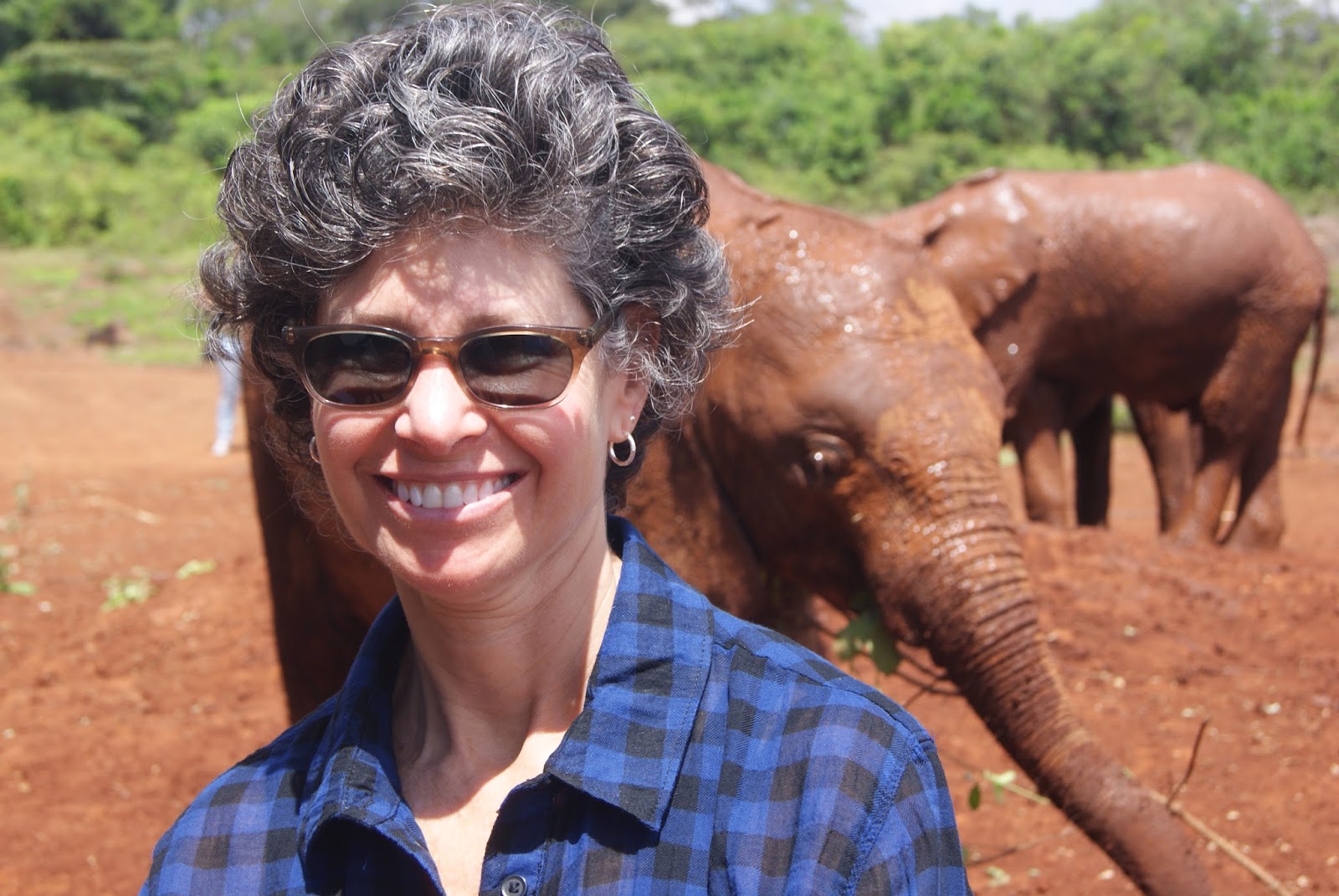12/16/14
We now have a daily routine. Walking to and from the office each day, sharing an office (literally) and exploring Nairobi on the weekends.
We now have a daily routine. Walking to and from the office each day, sharing an office (literally) and exploring Nairobi on the weekends.
We've learned that Nairobi is a city of great
contrasts. We found the central business
district somewhat seedy, as is common in a developing country. Cell phone stores are ubiquitous. Just three miles out of town is the beginning
of a national reserve, where lions, zebras, etc. roam free. As we drove near the reserve, several baboons crossed the road in front of
our car. We visited the Elephant
Orphanage, home to baby elephants less than three years old who were rescued because
they were injured or their mothers had died due to poaching or natural causes. And,
yes, you can adopt a baby elephant—you just can’t and wouldn’t want to take it
home. When these baby elephants become three years old, they are taken out to
one of the national park reserves, so that they can be integrated with and adopted
by elephant families. The process takes
another 5-7 years for elephant families to accept the orphans. We visited the nearby Giraffe Park, where these
huge, incredible and beautiful animals ate out of our hands. We lunched in
Karen, a suburban part of Nairobi. The
homes were gorgeous—we could have been in Great Falls or Potomac—except each
home was surrounded by high walls and overseen by 24 hour security guards. Adjacent to a nice neighborhood, closer to
town, is the worst slum area in Nairobi.
The disparity in wealth is great.
Last week, Don drove about 2.5 hours out of Nairobi to
the central part of Kenya to observe a development project. The countryside is beautiful, with abundant
rice fields, banana trees, corn fields and so forth. The resources in Kenya are amazing. But the workforce in the rice fields earned
about $2-3/day. In the small towns that he
passed, there were numerous kiosks selling a variety of different items. If each kiosk owner makes $2-3/day, they are
doing well. In Nairobi, a woman doing
housekeeping earns about $6/day. While there is a growing middle class in
Kenya, the majority make due at a subsistence level.
I spent my week traveling through Uganda. I have never
seen such poverty. Things we take for granted—running water, bathrooms,
refrigeration, kitchen facilities, paved roads (or cars)--don’t exist for many
of those people. Their clothing ranged from none, for the very small children,
to blankets draped around farmers or herders, to clothes that could have been donated
by you or me. Regardless, each greeted
us with a handshake and a smile; except for the small children, who sometimes cried
because they had never before seen a white person. The capital, Kampala, was the opposite; it was
dominated by severely heavy traffic, thick morning smog and row-after-row of
shanty-businesses. An interesting experience, but I was happy to return to
Kenya.
The Kenyan newspapers have robust political
discussions. The current debate involves
the security laws being considered by Parliament with would give the President
expanded powers to deal with the terrorist threats. The new proposals would permit wire-tapping
of telephones and would prohibit journalists from printing information that
would undermine national security. The
issues being debated, such as limitations to privacy and freedom of the press,
to address security risks are not that much different than some of the debates
going on in the U.S. Every day the
newspapers carry articles about corruption. It is clearly endemic to the
society; but little is done to change the situation. Yesterday the newspapers carried an article
about girls who were circumcised. It is
outlawed in Kenya, but continues in many areas. The parents were quoted as
saying that the government should not interfere.
What is striking to us most of all is how nice and
welcoming the Kenyan people are. We have
met many wonderful people in our short stay here.






No comments:
Post a Comment